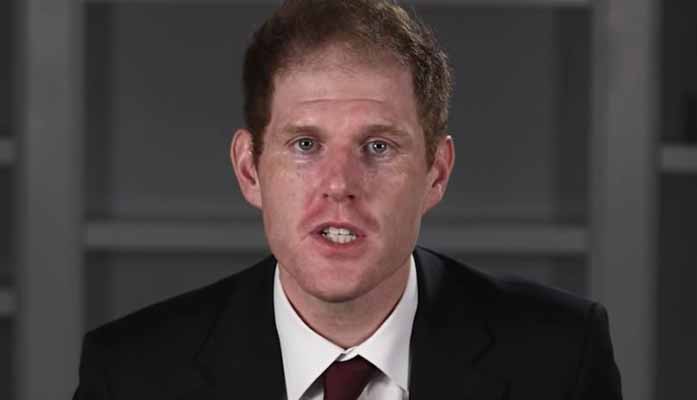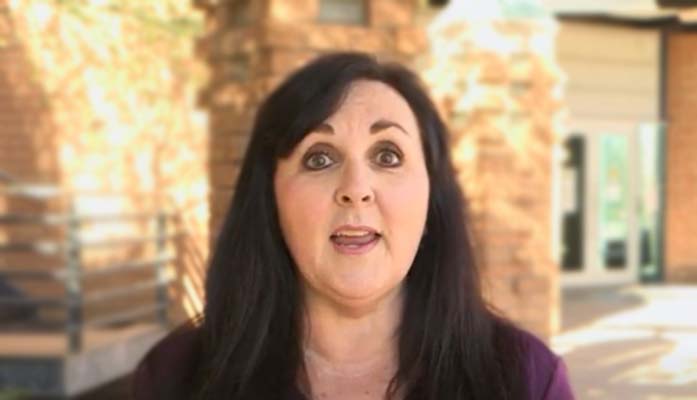
by Corinne Murdock | Jun 18, 2023 | News
By Corinne Murdock |
Rep. Paul Gosar (R-AZ-09) introduced a bill to terminate the decade-old national emergency over Libya.
Former President Barack Obama instituted the national emergency in February 2011. Gosar pointed out that despite periodic congressional reviews of presidents’ national emergencies every six months, the Libyan declaration hadn’t been reviewed.
“The people of Libya deserve to live in a manner of their choosing without the prospect of U.S. bombings, attacks, or color revolutions thrust upon them by corrupt and misguided American agencies – none of whom are acting with Congressional approval,” said Gosar. “The true situation is that no group or person in Libya currently poses a threat to our national security. Furthermore, even if there was some hostility, none of it rises to the level of an ‘unusual and extraordinary threat to national security and foreign policy.’”
Under Obama’s executive order declaring the emergency, all ties were cut with senior officials and political leaders of the Libyan government, especially allies and family of former Colonel Muammar Qadhafi (Gaddafi).
Gaddafi was assassinated eight months after the emergency declaration. Yet, Gosar pointed out that the continued extension of Obama’s order cited Gaddafi as a reason for the necessity of the declaration.
“Almost hilariously, the extended national emergency related to Libya continues to cite Muammar Qadhafi as the reason for the declaration, even though Qadhafi has been dead for almost 12 years,” said Gosar. “You can’t make this stuff up.”
Gaddafi ruled over Libya for over 40 years, abolishing the monarchy and establishing an authoritarian regime enforced by a police state. Gaddafi immediately began insulating the country from outside influences, shutting down British and American military bases. He then launched a cultural revolution in the 1970s that did away with existing laws, communism, conservatism, fascism, atheism, capitalism, and the Muslim Brotherhood; armed citizens; and established an Islamic state.
Gaddafi’s end came through the Arab Spring color revolution that arose in 2010 throughout Asia and Africa, affecting Tunisia, Egypt, Yemen, Syria, and Bahrain in addition to Libya.
At the time, Hillary Clinton served as the secretary of state. A year after Gaddafi’s assassination, on Sept. 11, the Benghazi terror attack occurred. Clinton took responsibility a month after the attacks. There remains controversy over whether Clinton gave the “stand-down order” to withhold a Special Operations team from Benghazi.
U.S. Agency for International Development (USAID) reports that the U.S. government has invested over $900 million in development, security, and humanitarian assistance in Libya. From 2019 to 2024, the USAID will spend over $23.3 million to establish economic stability in Libya.
According to the latest installment of the World Military Expenditures and Arms Transfers (WMEAT), the U.S. military and armed forces expenditures from 2012 to 2019 totaled $520 billion (based on market exchange rate conversion with a base year of 2019). However, these totals may be completely inaccurate: the WMEAT data discloses that these totals were “extremely uncertain.”
The Biden administration ended WMEAT last year. The transparency practice had been in place since 1974.
Corinne Murdock is a reporter for AZ Free News. Follow her latest on Twitter, or email tips to corinne@azfreenews.com.

by Corinne Murdock | Jun 18, 2023 | News
By Corinne Murdock |
Maricopa County Recorder Stephen Richer mocked a candidate for asking him about electronic petition eligibility, something which falls under the recorder’s knowledge.
The candidate, Rob Canterbury, is running for the District 4 seat in the Maricopa County Board of Supervisors (BOS). Canterbury is a 20-year Navy veteran who served in the Iraq War, and currently the Arizona GOP sergeant-at-arms.
Canterbury asked Richer when Maricopa County candidates would be eligible for electronic petitions. Richer responded with “lol,” followed up with a criticism that Canterbury wasn’t a suitable candidate for the BOS.
“That’s something the position you’re running for controls,” said Richer. “Maybe this is a pretty good indicator about how much you don’t know about the process before you talk about it?”
Richer didn’t offer an answer to Canterbury’s question in his initial reply.
Canterbury informed Richer that he reached out to ask because he’d learned conflicting information about electronic petition eligibility from another county-level candidate.
This wasn’t the first time that Richer poked fun at the expense of those kept at a distance from government knowledge. Last September, Richer tweeted a gif calling himself “fancy,” in a retweet response to then-Arizona Republic reporter Jen Fifield remarking that Maricopa County’s new press pass requirements would prevent The Gateway Pundit, a controversial outlet, from engaging in journalism.
Maricopa County then denied a press pass to a reporter from The Gateway Pundit on the basis that the outlet wasn’t objective or apolitical enough for their standards.
A month after launching the press pass system, the county launched a disinformation center and further limited press access on county property.
Around the time that The Gateway Pundit sued over the county’s exclusionary treatment, Richer deleted his tweet. The Ninth Circuit Court ruled in December that Maricopa County’s press pass admissions process was unconstitutional.
“Permitting ‘truth’ to be determined by the County violates our foundational notions of a free press,” stated the court.
Richer told AZ Free News that he didn’t have a specific reason for deleting the tweet. Rather, Richer said that he occasionally deletes posts that he dislikes or deems to be unproductive in hindsight.
Maricopa County paid a $175,000 settlement to the outlet in April.
Corinne Murdock is a reporter for AZ Free News. Follow her latest on Twitter, or email tips to corinne@azfreenews.com.

by Corinne Murdock | Jun 17, 2023 | Education, News
By Corinne Murdock |
Arizona State University (ASU) advocated for keeping pornographic LGBTQ+ books in K-12 classrooms.
The university featured commentary from professors on the subject as part of a feature story dedicated to Pride Month issued last week.
“In June, Pride Month is a time to promote inclusivity, raise awareness and celebrate the contributions the LGBTQ+ community has made to society,” read the article.
ASU classified an explicit graphic novel, “Gender Queer: A Memoir,” as an example of a banned book that qualified as a source of knowledge. The book details a wide variety of gay sexual acts and fantasies carried out by minors and adults.
English professor Gabriel Acevedo, who focuses some of his teaching on expanding students’ knowledge of LGBTQ+ literature, said that banning these kinds of books would limit students’ intellectual growth.
“By limiting that knowledge or not providing access to it, we are underestimating the student’s abilities to make choices that fit their lives,” said Acevedo. “We learn by reading. We learn by engaging these topics. If we don’t know these topics (because) we don’t engage with these materials, are we learning?”
School of Social Transformation Justice and Social Inquiry professor Madelaine Adelman said that LGBTQ+ content in K-12 schools is important for fostering acceptance.
“Why would they want to be in a place where they don’t feel accepted? Why would they want to continue their education in that space?” said Adelman.
Adelman co-founded the Phoenix chapter of the Gay Lesbian and Straight Education Network (GLSEN) in 2002 and served as its co-chair until 2013. Adelman was also a founding member of GLSEN’s National Advisory Council in 2004, departing the council in 2013. Adelman joined GLSEN’s Board of Directors in 2010.
The GLSEN Phoenix chapter appears wherever controversy over sexualizing children occurs. Recurring issues arise with GLSEN’s network of Gay-Straight Alliance or Gender-Sexuality Alliance (GSA) clubs in schools. GLSEN Phoenix also conducts LGBTQ+ affirmation training that schools have required teachers to attend, such as Cocopah Middle School.
In December 2021, GLSEN Phoenix urged teachers to create secret libraries to hide controversial or banned content.
Over the last few years, GLSEN has spoken out against bills to protect minors, such as last year’s ban on gender transition surgeries.
The Arizona Department of Education (ADE) had a working relationship with GLSEN under former Superintendent Kathy Hoffman.
ASU and GLSEN have numerous other ties, including the program manager for the Transgender Education Program (TEP), Cammy Bellis. Her work at ASU over the past decade concerned establishing greater awareness and normalization of LGBTQ+ lifestyles in K-12 environments.
One of the GLSEN Phoenix board members who encouraged the creation of secret libraries in schools, Andi Young, recently received her master’s degree in social work from ASU. Young is currently the co-chair of the board, and serves as a therapist/licensed master social worker with Beckstein Behavioral Health. Young describes herself as an “LGBTQ-affirming therapist” that assists teenagers and adults in living their “full, true, authentic selves.”
Corinne Murdock is a reporter for AZ Free News. Follow her latest on Twitter, or email tips to corinne@azfreenews.com.

by Corinne Murdock | Jun 16, 2023 | News
By Corinne Murdock |
As Phoenicians are asked to use less and pay more for water conservation efforts, the city continues with its plans to plant more trees.
The homeless are the main beneficiaries of tree shade. City leaders have characterized the tree planting efforts as an initiative to improve equity.
The city of Phoenix recently forfeited its Colorado River water rights in exchange for $60 million in federal funding for infrastructure. They joined Tucson and the state in doing so.
Phoenix is also planning an increase in its water usage fees by 26 percent, and wastewater service rates by 20 percent. The city also plans to cut water allowance by 16 percent in the winter months, and 20 percent in the summer months.
Prior to giving away the city’s water rights, Phoenix Mayor Kate Gallego discussed the plan to plant more trees during a Valentine’s Day interview with The Washington Post. Gallego focused on the trees resulting in an equitable impact for poorer citizens.
“We said that as we plant trees in our city, we would do it with an eye towards equity,” said Gallego. “Like many communities, our wealthier areas tend to have more tree cover than the areas that have not had as much investment.”
Gallego said at the time that their vision was a 25 percent increase in tree coverage within the next seven years and 100 “cool corridors,” or areas with tree cover. The city’s initiative can be traced back to the American Forests’ Tree Equity Pledge; Phoenix was the first city to sign on. These “cool corridors” will be backed by both local and federal funds.
These tree planting efforts aren’t without their setbacks: time and precious resources, such as water, lost on failed planting attempts. Gallego admitted in the Valentine’s Day interview that some of the trees planted have already been lost. She cited issues with the trees’ ability to thrive in certain urban settings.
“We also had some real challenges with some rough summer storms, and we planted in right-of-ways where the root box wasn’t big enough always to maintain the trees. So we lost some of the new trees we planted,” said Gallego.
Phoenix co-leads a Phoenix Region Urban Forestry Roundtable with American Forests, and recently committed $1.6 million to the initiative.
The city also plans to pay for residents to take care of these trees or potentially launch tree care-related businesses through a “Residential Tree Equity Accelerator” program. Gallego said that the program might alleviate the summer heat and reduce air conditioning bills.
Gallego shared that the city was seeking additional federal funding through the Inflation Reduction Act for their “urban forestry” efforts. Gallego revealed that the Biden administration has been supportive of cities like Phoenix using both COVID and economic federal relief funds for environmental initiatives.
“We have seen, I think, a huge acceleration with federal partnership. So, first, we were one of the communities that took American Rescue Plan dollars and put it into heat and shade trees, and then maybe not a story that’s been told a lot, but the Inflation Reduction Act is a generational investment in American forests and tree equity, including urban forests,” said Gallego. “And so we are still competing for those dollars, but we think that could be the most important partnership we have in achieving our goals.”
Arizona is currently in a historic Tier 2a drought status, according to the Bureau of Reclamation (BOR). 2023 marked the second year of cuts to Arizona’s water supply from the Colorado River, a major source for the state.
Corinne Murdock is a reporter for AZ Free News. Follow her latest on Twitter, or email tips to corinne@azfreenews.com.

by Corinne Murdock | Jun 14, 2023 | News
By Corinne Murdock |
Gilbert Mayor Brigette Peterson faces two federal lawsuits for alleged free speech violations.
Peterson was served the lawsuits earlier this month, both of which were filed in the Arizona District Court.
One of the lawsuits, Handelsman v. Town of Gilbert, names Ryan Handelsman, Brandon Ryff, and Joanne Terry as the citizens whose First Amendment rights were allegedly violated. The other lawsuit names one of the plaintiffs only, Ryff v. Town of Gilbert.
In the initial complaint filed in Handelsman v. Town of Gilbert, the citizens allege that Peterson and town officials retaliated against them for their criticism. The citizens handed out and held up approximately 100 signs at the town’s Sept. 20 council meeting last year. Peterson ordered police to remove a sign held by one of the plaintiffs, Terry. Following that interaction, another plaintiff, Handelsman, advised the mayor during public comments that no statute, code, or law prohibited silent display of a sign. Fellow plaintiff Ryff then issued critical comments of the mayor during the public comments.
Following those events, the three plaintiffs decided to hold their signs up again. Peterson had police remove the three plaintiffs from the meeting room.
“There was no disruption caused by Plaintiffs by silently hold[ing] their signs,” read the lawsuit. “It was the Mayor who created an actual disruption along with a constitutional violation, overreacting to something she could have simply ignored and was prohibited from squelching by the United States Constitution.”
After that incident, a citizen filed an ethics complaint against the mayor. The complaint alleged that Peterson violated policy provisions ensuring the impartial, fair, and respectful treatment of all citizens, as well as ensuring the loyalty to Gilbert citizens over personal considerations.
The final ethics report defended the mayor’s actions. It determined that Peterson was right in her actions in order to uphold decorum.
In response, the three plaintiffs alleged that the ethics investigation wrongly neglected to interview them; they alleged that the total defense provided by the final ethics report amounted to retaliation. In remarks to the media, Peterson accused the three plaintiffs of harassment and bullying. At least one of the plaintiffs, Ryff, alleged that these false public accusations by the mayor caused his business to suffer.
The three plaintiffs compared the mayor’s response to their sign-holding with her response during a November town council meeting last year, in which a disgruntled citizen forced the council into emergency recess and continued to disrupt even after the recess with her continued shouting.
There have been at least nine ethics complaints against Peterson since she became mayor in 2021. Eight of the nine were cleared; Peterson was found to have violated open records law as a result of one of the complaints. Concerning five of those complaints, outside investigation concluded that Peterson hadn’t violated the ethics code but did “exercise poor judgment” in some instances.
Ryff and Handelsman were behind several of the other past complaints. The pair filed complaints about the mayor’s communication and conduct concerning an apartment project in Morrison Ranch.
Corinne Murdock is a reporter for AZ Free News. Follow her latest on Twitter, or email tips to corinne@azfreenews.com.





